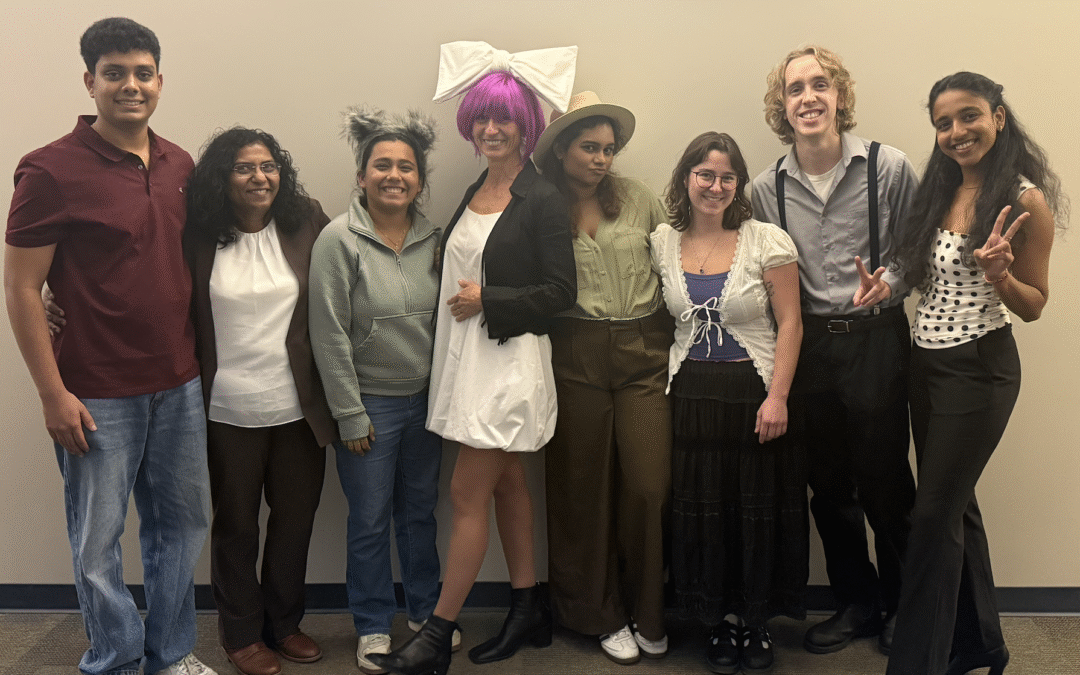Welcome back!
Here is our fourth reflection, Hitting our Stride, because this sprint, we really did hit our stride!
This sprint has been about refining, testing, and preparing for our biggest milestone yet; full deployment of the live website to the students of Bayside Middle School.
The deployment was challenging to complete, let us explain more context. The deployment is done… manually. We are working on having it done with Docker, and we have reached out to one of our technical contacts (in UVIC systems) and he will be helping us out in using Docker to deploy. Essentialy, we have deployed but not in the best practice. This is one of major sprint goals for the next sprint!
On a different note, we achieved all three other sprint goals we set out to accomplish. Firstly, finding effective assessment methods was challenging, as we needed an approach that aligned with the school’s engagement-based grading system. We addressed this by developing both a talkabout assessment and a Likert-scale assessment. Included in our approach are pre- and post-assessments for the students, and pre- and post-teacher interviews. These were all thoughtfully designed with direction and input from Kezia and Vito to ensure they would provide meaningful, unbiased data from both the teacher and students. The lesson we took from this was that finding criteria to meet our niche needs required more research than we initially anticipated!
Next, the login and authentication proved to be another hurdle. We encountered VPN issues and experienced delays from the school district. The key learning point in this was patience and adaptability. We had to take a step back, avoiding tunnel vision on the VPN problem, and worked effectively on other tasks while waiting for our partners to respond on their own timeline. In the end, the issue turned out to be on their end, but the whole experience was a learning one! The primary lesson we learned was that testing on the school’s network proved more important than testing on our own, teaching us always to verify assumptions (we make) with community partners before diving too deeply into problem-solving!
For feedback and UI updates, we focused on making the games more engaging based on student and school staff input. We made UI changes by adding an audio recorder so students can play back their own voices to improve pronunciation. This was driven by feedback from the school’s Speech Pathologist, Abby. We also improved the graphics for select games, making them more engaging. To bring context, we had a presentation by Norma this sprint, who specializes in Empathetic Software Engineering. She helped us with our decision-making and the big idea of reflecting on who our end users are. This notion of “end users are really just people” can be overthought in the software world! We were reminded, and it did help our engineering process—taking feedback from our “end users”. The end users —students —were crucial for both usability and engagement feedback!
Beyond our core sprint goals, we achieved several impressive “extras” this sprint.
We began documenting our code to improve future use and feasibility by creating a Confluence page. We also added two extra features: a SENĆOŦEN keyboard and the audio recorder we mentioned above. Additionally, we met with our mentor Kate to discuss the documentation write-up (the Confluence page), and we submitted the first draft of our Privacy Impact Assessment (PIA) to our school contact.
Our key learnings from this sprint centred around three main themes. First, community partners work on their own timeline, and we need to respect them while finding productive work we can control. Secondly, reaching out for help sooner rather than later speeds up tasks and saves time in the long run. Lastly, building contingency time into our plans proved essential; it enabled us to achieve this sprint’s primary goal.
Looking ahead to our next sprint, we have five clear goals beyond clearing up our deployment issues: fixing bugs from the bug bounty, adding audio to games, supporting the Bridging Roots platform-led classes in the school, conducting data collection, and running user testing with INSPIRE students. We have built contingencies into each of these goals: starting tasks early to allow leeway time, preparing backup audio in case Indigenous-specific audio cannot be found, and having multiple data collection methods ready for whatever the student participation may be. We are also setting up user testing for INSPIRE students with a three-day completion window to ensure maximum flexibility.
As we enter mid-November and approach our data collection phase, the real impact of our work will be measured. We are feeling prepared, with solid contingency plans and a clear roadmap through December. As a team, we are feeling connected and are working well together! Having team camaraderie and excellent dynamics significantly reduces stress and helps us tackle issues as a whole.
The next few weeks may be intense, but we are ready for them!

